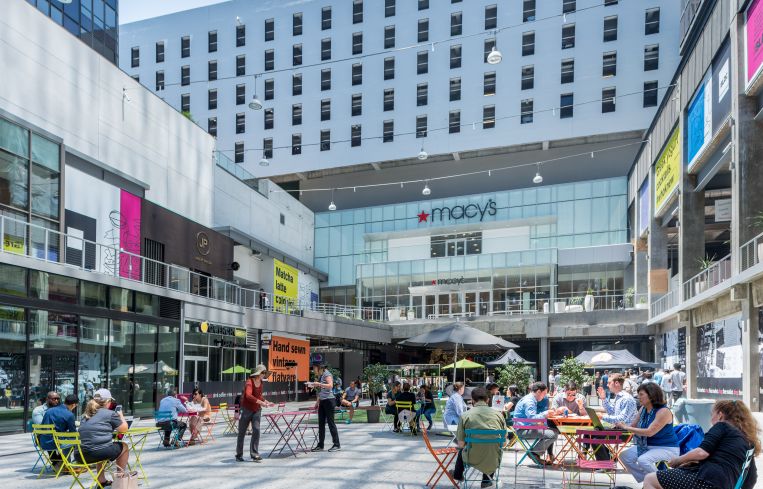Retailers: Offer Unique Products, Diversify and Be Experiential
By Lauren Elkies Schram May 23, 2018 5:16 pm
reprints
“You grow, you shrink or you die. You don’t stay the same.” So said Patrick Smith, a vice chairman of retail brokerage at JLL, at the International Council of Shopping Centers’ RECon conference.
The broker said that retailers need to find ways to drive people into their bricks-and-mortar locations as retail across the U.S., “category to category, is homogenous,” with many tenants during the same things.
The ways to do this are selling unique merchandise, diversifying and becoming more experiential.
Movie theaters are upping their offerings with in-theater dining. Malls are adding various entertainment venues to entice people to frequent their center. Companies are entering new industries.
Furniture store Restoration Hardware, fitness giant Equinox and luxury goods brand Shinola are getting into the hospitality business. Clothing store Urban Outfitters is doing well with its vinyl business while Terrain garden and home store in Westport, Conn. (a sister brand of Urban Outfitters) is operating a café where everything is for sale.
Retailers are expected to “connect people to a place,” and provide a “higher” level of service, said David Sheldon, the vice president of client engagement at Long Beach, Calif.-based architecture firms Retail Design Collaborative and Studio One Eleven.
A case in point, he said, is nordstrom, known for its department stores, is opening small concierge service centers called Nordstrom Local, where the retailer is “tailoring” services to its customers. Those include tailoring suits from other stores and advising online Nordstrom shoppers on shoe care in person, he added. Studio One Eleven is doing shell and core work for a Nordstrom Local at The Bloc, formerly known as Macy’s Plaza, in Downtown Los Angeles.
Another factor that can give retailers an edge is selling proprietary products, Smith said. Trader Joe's has developed a loyal following with its proprietary products. Street-gear retailer Kith has done well in its exclusive partnerships with celebrities which force consumers to stand in line at a brick-and-mortar location to buy the products, Smith noted.
Beyond the product offerings, retailers need to focus on the overall shopping experience.
According to a JLL retail report released at ICSC, there are six dimensions to a retail experience: 1) intuitive (shoppers need to be able to easily find what they are looking for), 2) human (there need to be quality interactions with knowledgeable salespeople), 3) meaningful (the retailer needs to make a difference in the lives of shoppers), 4) immersive (the store needs to be appealing and captivating), 5) accessible (consumers need to be able to shop wherever and whenever they want) and 6) personalized (the brand needs to know the consumer’s likes and dislikes and offer rewards based on loyalty).
The companies that received the highest marks across those dimensions are Apple, Victoria's Secret, Ulta Beauty, Bath & Body Works and Ikea, the report found. But many retailers, the report concluded, are failing to deliver the kind of experience that consumers have come to expect.
Update: This story has been edited to reflect that merchandise-free Nordstrom stores are called Nordstrom Local.



